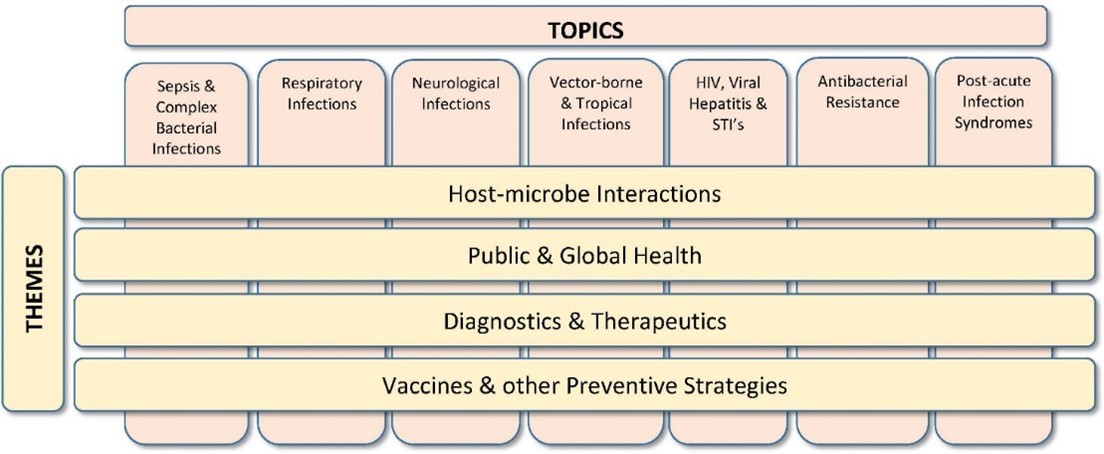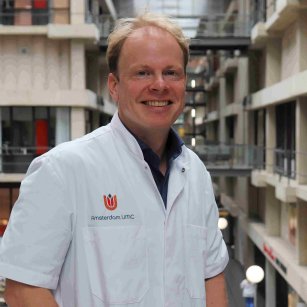Advancing the understanding of infectious diseases through fundamental, clinical, and public health research, to reduce the global burden of illness and improve public health for future generations.
Aim
With a commitment to excellence in patient care, cutting-edge research, and policy influence, our aim is to significantly reduce the impact of infectious diseases on individual and population health, both locally and globally.
Organizational structure of the Infectious diseases program
At the core of our program lies a matrix framework designed to optimize research focus, capitalize on strengths, and foster interdisciplinary collaboration. This framework includes four overarching themes and seven specific topics, guiding our efforts to tackle the multifaceted challenges posed by infectious diseases.
Themes
I. Host-Microbe Interaction
This theme explores the intricate interplay between hosts and microbial pathogens, unraveling the mechanisms underlying disease transmission, virulence, and immune responses.
II. Public & Global Health
With a focus on population-level health outcomes, this theme examines the epidemiology of infectious diseases, their societal impact, and strategies for prevention and control on a global scale.
III. Diagnostics & Therapeutics
Here, our research delves into the development and optimization of diagnostic tools, biomarkers, therapeutic interventions, and treatment strategies aimed at combating infectious diseases.
IV. Vaccines & Other Preventive Strategies
This theme explores innovative approaches to vaccination, immunization strategies, and other preventive measures to mitigate the spread and impact of infectious diseases.
Topics
Each of these overarching themes is linked to seven specific topics.
- Sepsis & complex bacterial infections
- Respiratory infections
- Neurological infections
- Vector-borne & Tropical infections
- HIV, viral hepatitis & STI’s
- Antimicrobial resistance
- Post-acute infection syndromes
This collaborative framework serves as the cornerstone of our program, empowering us to address a wide spectrum of infectious disease challenges while fostering a vibrant and dynamic research community. By leveraging our collective expertise and resources, we aim to make a lasting impact in reducing the burden of infectious diseases and advancing the frontiers of scientific knowledge. Together, we are dedicated to address the most pressing global health threats of our time.




















